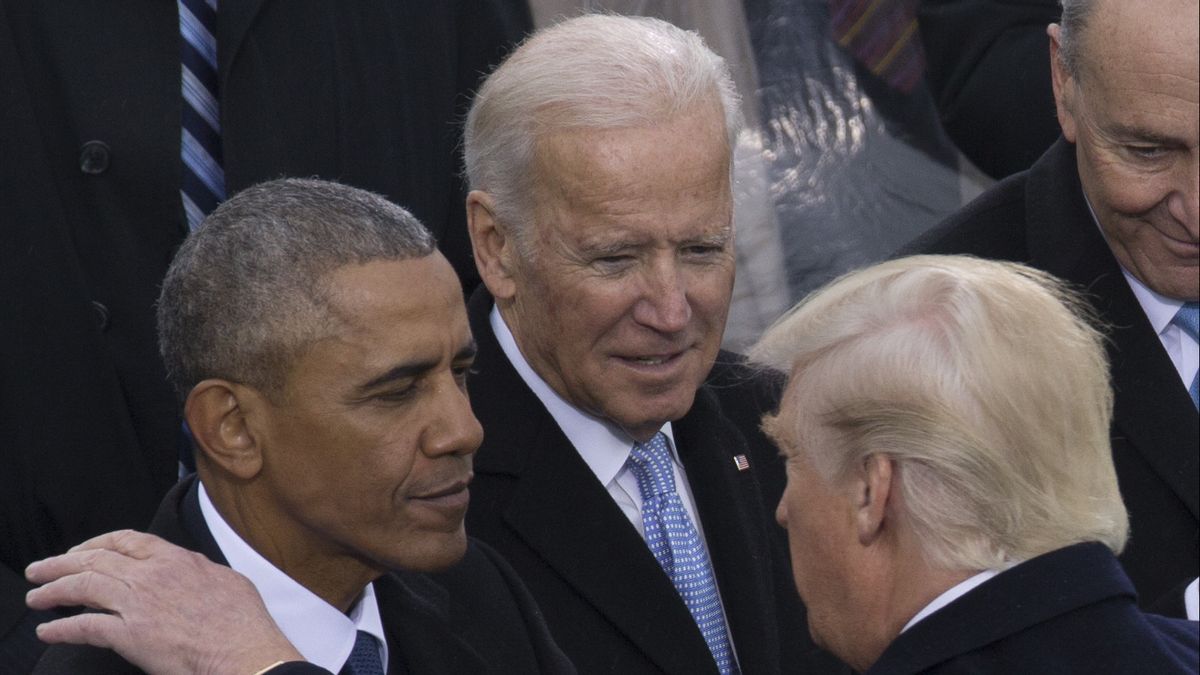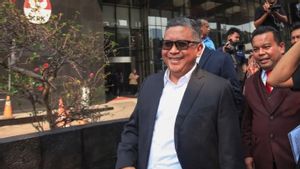JAKARTA - On January 27, 2017, President of the United States (US) Donald Trump officially banned entry for people from seven Muslim-majority countries. The policy was actually triggered since the administration of President Barack Obama. And now, the US president-elect, Joe Biden plans to revoke it. So what is the process for the formation of these regulations?
Through the executive order number 13769, Trump banned entry of people from seven Islamic countries such as Iraq, Iran, Syria, Yemen, Already, Libya and Somalia for 90 days. The regulation was then rejected by US citizens.
There are at least four regions that reject the policy, namely, Washington, Virginia, Massachusetts and New York. Rejection also came from an Acting Attorney General, Sally Yates. Because he refused, as reported by The Guardian, Trump fired the newly appointed person at the end of the Obama administration.
Yates is not sure the executive order is legal. Moreover, Trump prefers Christian refugees, this shows discrimination and Islamophobic behavior.
This policy also wreaked havoc in many countries. The reason is, not a few travelers are stuck at the airport. Protesters marched against the sweeping action blocked by several federal courts.
Demonstrations first started a day after Trump signed the order. In Washington, hundreds of demonstrators gathered outside the White House, carrying posters that read: "We are all immigrants to America."
Because he angered Americans, Trump revised the rules. He put Iraq and Sudan on the travel ban list, but citizens from these countries will be strictly checked when entering immigration. Those who are excluded are only permanent residents who live in the US and who have green cards.
In addition, Syrian refugees are no longer banned indefinitely, and this new policy does not prioritize Christians anymore. In September, the Trump administration added to the list of banned countries, including Venezuela and North Korea.
According to M Arraf Rezkia Rachman in his journal entitled "Donald Trump's Travel Policy Analysis" published by the Journal of Government Science (2018), he explained that since September 11, no one has been killed in a terrorist attack carried out by immigrants from countries including in the prohibition.
Rachman described major attacks such as September 11 in New York, the Boston marathon bombing and the Orlando nightclub attack by people from countries not on the list such as Saudi Arabia, Egypt, or by US residents themselves. "Fewer than one in four Muslim Americans who carry out terrorist activities have a family in these countries," he said.
InitiallyAs Observer wrote, this policy was actually first sparked during the Barack Obama administration. In 2015, the Obama administration drafted a Visa Waiver and Travel-Terrorist Prevention Bill (RUU).
The proposal for the bill was made after the 2015 Paris attacks. The aim is to tighten the rules for people who have visited Syria, Iraq or are dual citizens of these countries.
Quoting The Washington Post, initially the regulation only prohibited the Syrian state. The other six countries, Iraq, Iran, Sudan, Libya, Yemen, and Somalia were not specifically named or included on the list of restrictions gradually.
This is the first indication that people from the seven countries have been restricted from entering the US. Meanwhile Trump is taking this legal platform and taking it to a new level.
The bill was then introduced in the Senate by Dianne Feinstein, US Senator from the Democratic Party who has served since 1992 until now, and Jeff Flake, who was also a senator from the Republican Party. It was then that the Bill on Increasing the Visa Waiver and Prevention of Terrorist Travel Program was promulgated in 2015.
In 2016, the new Obama administration added Libya, Somalia and Yemen to its list of restrictions. But they said they would not impose restrictions on citizens who hold dual nationality from these countries.
Still according to Observer, a lawyer on the Arab American Anti-Discrimination Committee, Yolanda Rondon is one of the people who harshly criticized the policy. According to him, this policy is based on an unreliable assumption when he considers Arabs to be more vulnerable to terrorism. According to him, this actually perpetuates the stereotype that Arabs are terrorists.
In January 2016, one of the victims of the ban imposed during the Obama administration was BBC journalist Rana Rahimpour. He is prohibited from traveling to the US because he was born in Iran.
Ended BidenIn a few months, the Trump administration will end. Joe Biden's victory in the 2020 US Presidential Election will shift Trump's position. If Biden keeps his promise, this rule will disappear as Trump leaves the White House.
The regulation is weak and easily overturned. This is because according to policy experts, the regulation was issued by the executive order and the president's proclamation. But lawsuits from conservatives could delay the cancellation process.
For that Biden promised to encourage politicians to make laws to combat the increasing number of hate crimes in the US. "The Muslim community is the first to experience Donald Trump's attack on the black and brown community in this country with the heinous Muslim Ban rule. That fight is the opening line in nearly four years of constant pressure and humiliation," said Biden.
Joe Biden led the way with the Electoral College vote of 290 to 214 in the state-by-state vote. His supporters are now waiting for the realization of Biden's promises and one of them is lifting the ban.
The English, Chinese, Japanese, Arabic, and French versions are automatically generated by the AI. So there may still be inaccuracies in translating, please always see Indonesian as our main language. (system supported by DigitalSiber.id)









